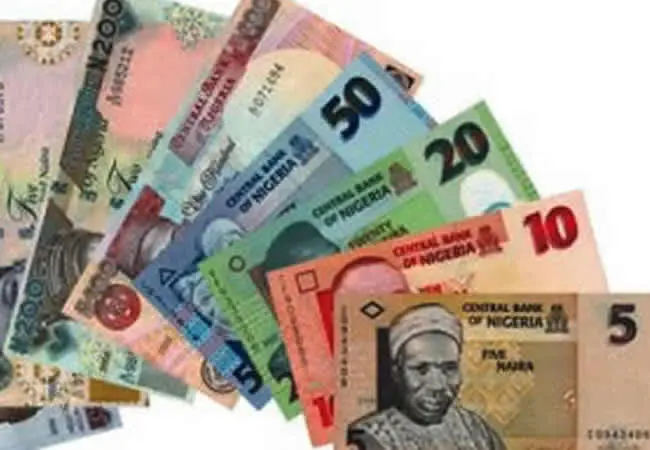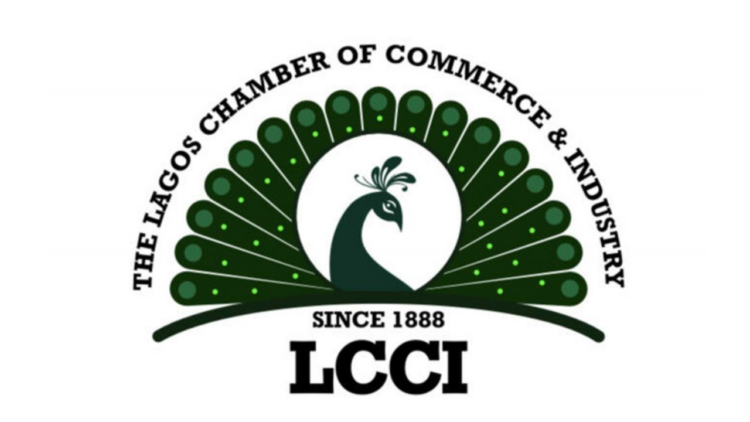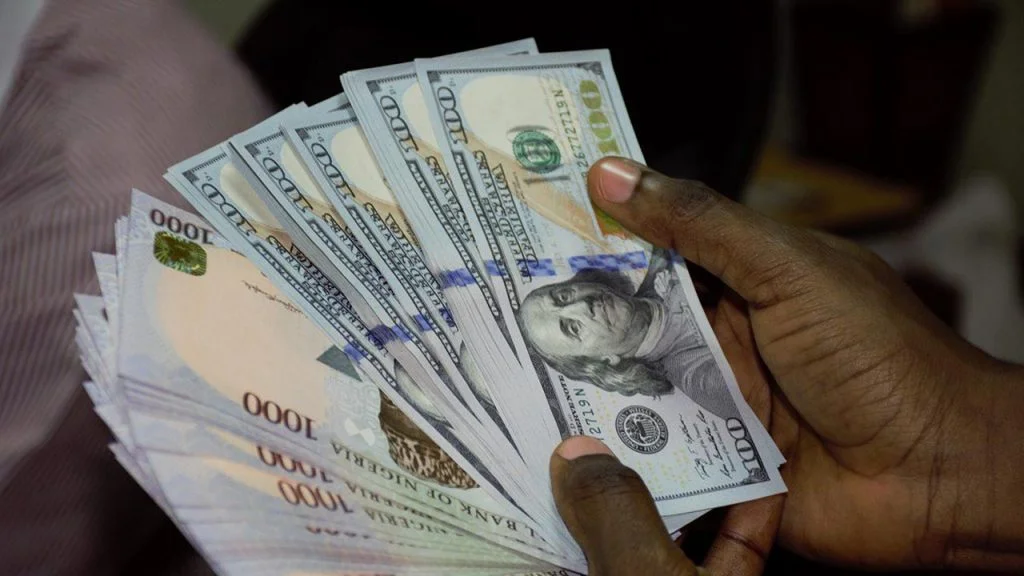Business
Hyper-inflation continues to erode Nigerians purchasing power at 31.70%—NBS

Hyper-inflation in Nigeria has continued to rave the purchasing power of Nigerians as it rose to 341.70 in February. National Bureau of Statistics in its February inflation report said “in February 2024, the headline inflation rate increased to 31.70 per cent relative to the January 2024 headline inflation rate which was 29.90%. Looking at the movement, the February 2024 head-line inflation rate showed an increase of 1.80% points when compared to the January 2024 headline inflation rate. On a year-on-year basis, the headline inflation rate was 9.79% points higher compared to the rate recorded in February 2023, which was 21.91%. This shows that the headline inflation rate (year-on-year basis) increased in the month of February 2024 when compared to the same month in the preceding year (i.e., February 2023).
“Furthermore, on a month-on-month basis, the headline inflation rate in February 2024 was 3.12%, which was 0.48% higher than the rate recorded in January 2024 (2.64%). This means that in February 2024, the rate of increase in the average price level is more than the rate of increase in the average price level in January 2024. that in February 2024, the rate of increase in the average price level is more than the rate of increase in the average price level in January 2024. The percentage change in the average CPI for the twelve-month ending February 2024 over the average of the CPI for the previous twelve-month period was 26.18%, showing a 6.31% increase compared to 19.87% recorded in February 2023. On a year-on-year basis, in February 2024, the Urban inflation rate was 33.66%, this was 10.87% points higher compared to the 22.78% recorded in February 2023. On a month-on-month basis, the Urban inflation rate was 3.17% in February 2024, this was 0.45% points higher compared to January 2024 (2.72%). The corresponding twelve-month average for the Urban inflation rate was 27.93% in February 2024. This was 7.48% points higher compared to the 20.45% reported in February 2023.
“The Rural inflation rate in February 2024 was 29.99% on a year-on-year basis; this was 8.89% higher compared to the 21.10% recorded in February 2023. On a month-on-month basis, the Rural inflation rate in February 2024 was 3.07%, up by 0.50% points compared to January 2024 (2.57%). The corresponding twelve-month average for the Rural inflation rate in February 2024 was 24.61%. This was 5.28% higher compared to the 19.33% recorded in February 2023. The Food inflation rate in February 2024 was 37.92% on a year-on-year basis, which was 13.57% points higher compared to the rate recorded in February 2023 (24.35%). The rise in Food inflation on a year-on-year basis was caused by increases in prices of Bread and cereals, Potatoes, Yam and other Tubers, Fish, Oil and fat, Meat, Fruit, Coffee, Tea, and Cocoa. On a month-on-month basis, the Food inflation rate in February 2024 was 3.79% this was 0.58% higher compared to the rate recorded in January 2024 (3.21%). The rise in the Food inflation on a Month-on-Month basis was caused by a rise in the rate of increase in the average prices of Bread and Cereals, Potatoes, Yam & Other Tubers, Fish, Coffee, Tea, and Cocoa.
“The average annual rate of Food inflation for the twelve months ending February 2024 over the previous twelve-month average was 30.07%, which was a 7.95% points increase from the average annual rate of change recorded in February 2023(22.12%). The “All items less farm produces and energy” or Core inflation, which excludes the prices of volatile agricultural produces and energy stood at 25.13% in February 2024 on a year-on-year basis; up by 6.76% when compared to the 18.37% recorded in February 2023. The highest increases were recorded in prices of Passenger Transport by Road, Actual and Imputed Rentals for Housing, Medical Services, Pharmaceutical products, etc. On a month-on-month basis, the Core Inflation rate was 2.17% in February 2024.
“It stood at 2.24% in January 2024, a decline of 0.07%. The average twelve-month annual inflation rate was 21.72% for the twelve months ending February 2024; this was 4.97% points higher than the 16.75% recorded in February 2023. In February 2024, All Items inflation rate on a Year-on-Year basis was highest in Kogi (37.98%), Oyo (36.60%), Bauchi (35.62%), while Borno (26.28%), Taraba (26.72%) and Benue (27.40%) recorded the slowest rise in Headline inflation on Year-on-Year basis. On a Month-on-Month basis, however, February 2024 recorded the highest increases in Kwara (6.42%), Kebbi (4.64%), Adamawa (4.46%), while Katsina (1.93%), Cross River (1.98%) and Benue (2.33%) recorded the slowest rise on Month-on-Month inflation. In February 2024, Food inflation on a Year-on-Year basis was highest in Kogi (46.32%), Rivers (44.34%), and Kwara (43.05%), while Bauchi (31.46%), Plateau (32.56%), and Taraba (33.23%) recorded the slowest rise in Food inflation on Year-on-Year basis. On a Month-on-Month basis, however, February 2024 Food inflation was highest in Adamawa (5.61%), Yobe (5.60%), and Borno (5.60%), while Cross River (2.08%), Niger (2.56%), and Abuja (2.60%) recorded the slowest rise in Food inflation on Month-on-Month basis.”
CREDIT: businessnewsreport
Business
Inflation bites harder, renders N20, N10, N5 ‘irrelevant’

In major markets, prices of goods are shifting away from the lower denominations of the Naira currency due to worsening inflation.
Not too long ago, items like a sachet of pure water were priced at N5, while N20 was commonly used to “settle” police officers at checkpoints. However, in recent years, these smaller denominations have struggled to purchase much.
A recent market survey by DAILY POST revealed that more than half of Nigeria’s legal tender is insufficient for making purchases.
Despite this, the Central Bank of Nigeria (CBN) recognizes denominations such as 50 kobo, N1, and N2 in coin form, as well as N5, N10, N20, and N50 printed on polymer materials.
Currently, a sachet of pure water is priced at N30, and retail prices for items like sugar and candies have increased, with goods often being priced in multiples of 50 or 100, rendering smaller denominations irrelevant.
Over the past six months, the Naira has significantly depreciated against the dollar, with the intervention by the CBN bringing it to around N1050 to a dollar from a previous high of about N1,900.
This means that Nigeria’s highest denomination of N1000 is now worth less than a single dollar. Holding $1000 makes one a millionaire in Naira based on the current exchange rate, while even $1 exceeds N1,000.
Despite the recent appreciation of the Naira, commodity prices remain high, attributed to various factors including foreign exchange (FX) issues.
However, the Nigerian government continues to print lower denomination currencies at a substantial cost. It reportedly costs N1000 to print each lower denomination due to limitations in printing on polymer.
Experts are urging the CBN to cease printing lower denominations and reconsider the currency structure in line with present circumstances. Some suggest adopting a re-denomination policy similar to Ghana’s, which removed zeros from their currency in 2007.
Former plans by the CBN to introduce N5000 notes and coin lower denominations like N5, N10, and N20 were met with public backlash in 2012, leading to the abandonment of the proposals. However, prices of goods and services have since risen beyond 2012 levels.
Business
Interest Rate, High Energy Costs Putting Businesses Under Pressure, LCCI Laments

The Lagos Chamber of Commerce & Industry (LCCI) has expressed concern about the elevated cost of conducting business in Nigeria, citing factors such as the recent hike in the Monetary Policy Rate (MPR) and the increase in electricity tariffs.
Dr. Chinyere Almona, the director-general of LCCI, conveyed these concerns in a statement addressed to LEADERSHIP. Almona highlighted the Chamber’s dismay over the Central Bank of Nigeria’s (CBN) decision to raise the MPR from 22.75 percent to 24.75 percent, stating that “similarly, we view the recent escalation in electricity tariffs as adding to the already unbearable cost of living and doing business in Nigeria.”
She underscored that these decisions are compounded by challenges in importing and clearing goods at Nigerian ports, with fluctuating import duty exchange rates making business planning arduous. Almona emphasized that feedback from businesses and analysts suggests that these actions will significantly burden the private sector, worsening an already challenging economic landscape.
Almona noted that the private sector, crucial for driving growth and employment in Nigeria, is grappling with heightened borrowing costs, reduced investment incentives, policy uncertainties, and pressure in the foreign exchange market. She observed that the recent MPR hikes have translated into higher interest rates, hindering businesses’ access to credit for essential functions like working capital, expansion, and sustainability.
While acknowledging the rationale behind removing the subsidy on electricity supply to attract foreign investors with a cost-reflective tariff, Almona advocated for subsidizing production rather than consumption. She urged for an extensive metering program to cover all electricity consumers and emphasized the necessity of a robust regulatory and policy framework to attract more foreign investments into the power sector.
Almona pointed out that small and medium-sized enterprises (SMEs) are disproportionately affected by the MPR hike policy, given their thin profit margins and reliance on affordable credit. The surge in borrowing costs stifles their ability to invest in productivity enhancements, hire new employees, and contribute to economic growth.
The Chamber urged the CBN to reconsider its monetary policy stance and refrain from further interest rate hikes. Almona also suggested that the CBN explore alternative policy measures to facilitate credit access, encourage investment, and support entrepreneurship. Additionally, she recommended creating an enabling environment for local meter manufacturing to address the gap in meter deployment.
Business
Naira appreciates N351 against Dollar at forex in one month

According to data from FMDQ on the dollar exchange rate spanning from March 8 to April 5, 2024, the Naira has experienced a positive shift, appreciating by N351.12 against the US Dollar within the past month. This indicates an increase from N1,602.17 on March 8 to N1,251.05 per Dollar on Friday. This appreciation amounts to a 21.9 percent increase during the mentioned timeframe, signaling a continued strengthening of the Naira since the previous month.
Muda Yusuf, the Director of the Centre for the Promotion of Private Enterprise, attributed this sustained appreciation of the Naira in the foreign exchange market to recent forex reforms implemented by the Central Bank of Nigeria.
-

 World News7 months ago
World News7 months agoWhat we know about Israel’s war with Hamas
-

 Sports7 months ago
Sports7 months agoLaLiga: Everyone want to play with him – Vinicius on player Real Madrid should sign
-

 World News7 months ago
World News7 months agoIran calls on Islamic, Arab countries to confront Israel
-

 Tech7 months ago
Tech7 months agoTop 10 AI Skills to Learn in 2023
-

 Entertainment7 months ago
Entertainment7 months agoBET Hip-Hop Awards: Black Sherif wins big as Burna Boy loses seven nominations
-

 Entertainment6 months ago
Entertainment6 months ago‘Black Panther’ star Lupita Nyong’o breaks up with boyfriend, Selema Masekela
-

 ICT8 months ago
ICT8 months agoApple Bows To EU, Unveils iPhone With USB-C Charger
-

 World News7 months ago
World News7 months agoZelensky seeks defences for winter on visit to NATO






